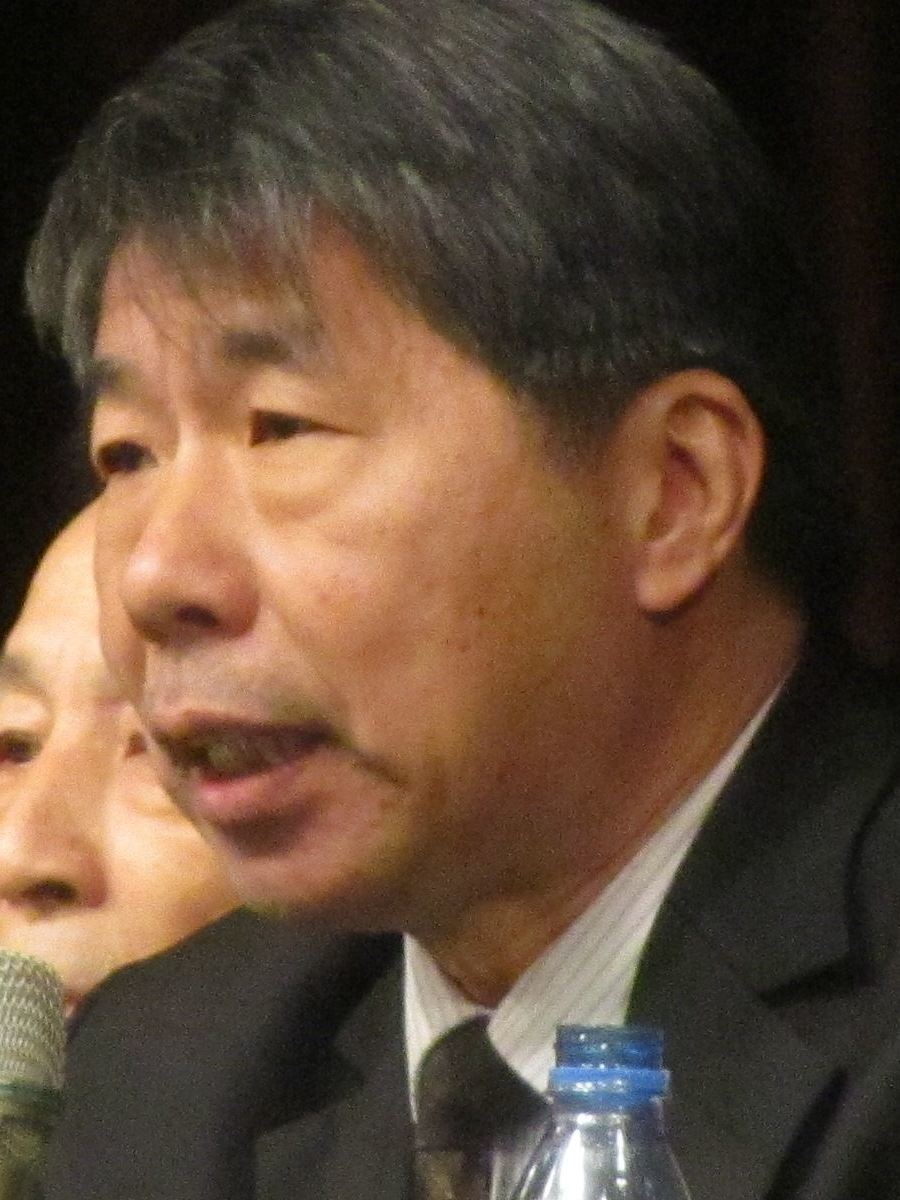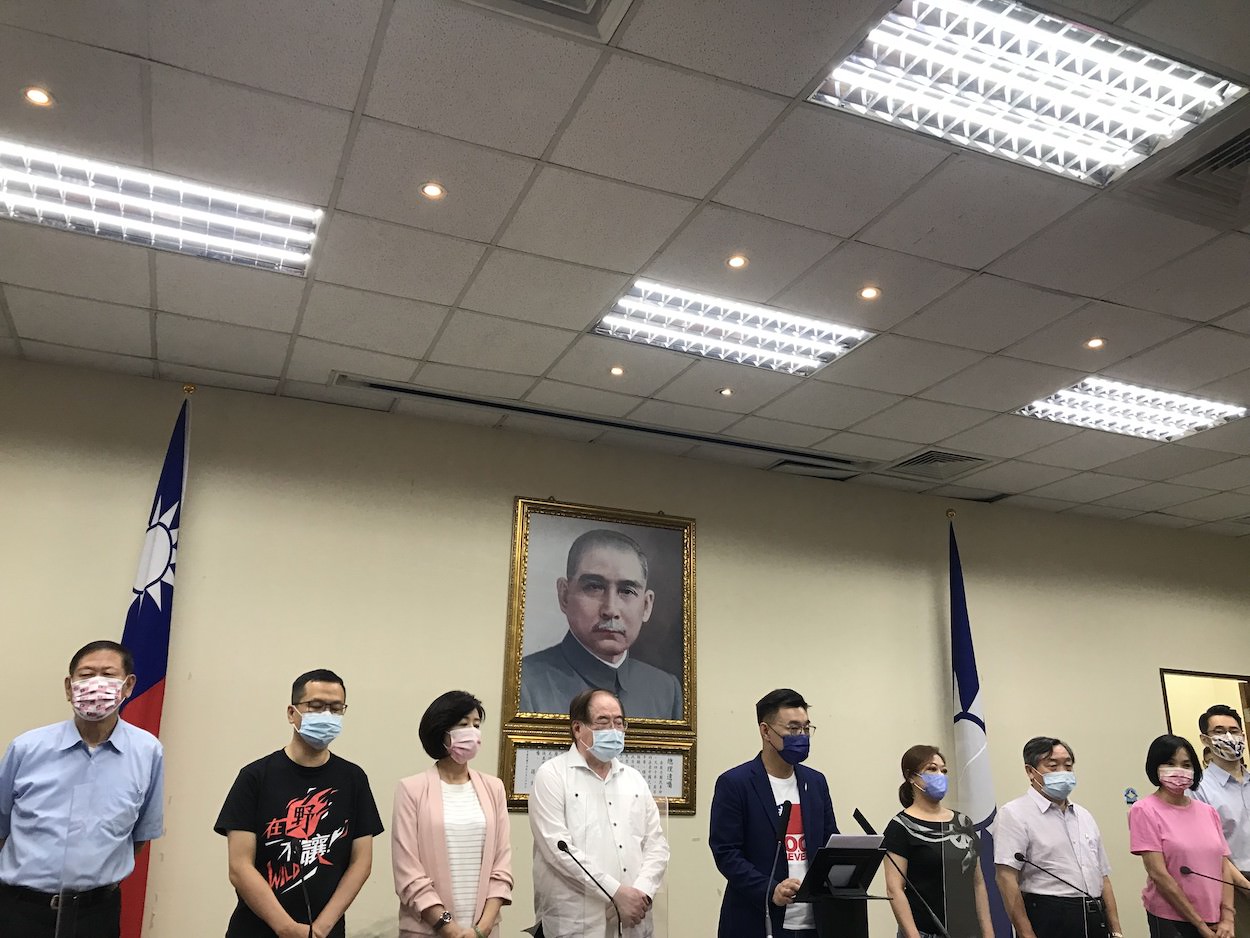by Brian Hioe
語言:
English
Photo Credit: Eric Chu/Facebook
FORMER NEW TAIPEI mayor and previous party chair Eric Chu was the winner of the KMT chair elections today. Chu was the clear winner, with 83,027 votes, or 45.96% of counted votes, at press time. However, what proves significant is that after Chu, Sun Yat-Sen School head Chang Ya-chung won the second highest number of votes, with 58,980 or 32.65% of votes. After Chang was current chair Johnny Chiang, who was running for re-election, with 33,604 or 18.6% of counted votes, and in last was former Changhua county magistrate Cho Po-yuan, with 5,037 votes, or 2.79%.
Voting began today at 8 AM and lasted until 4 PM in polling stations across Taiwan. By a little after 6 PM, the results of the race were already known. Voter turnout was high compared to the 2020 by-election that put Johnny Chiang in power, which had a turnout of 35.85% of eligible voters. With 182,571 out of around 370,000 eligible voters participating, turnout is expected to surpass 50%, which could be a sign of an energized party base at present.
In the weeks immediately prior to the election, it proved a surprise when polling from TVBS and other pan-Blue media indicated that Chu and Chang were neck-and-neck in the race, or that Chang was ahead of Chu. This ultimately was not the case; Chu’s victory over Chang was still by some 25,000 votes. Yet some wondered as to the accuracy of polling that showed Chang’s strong performance.
 Campaign ad by Eric Chu. Photo credit: Eric Chu/Facebook
Campaign ad by Eric Chu. Photo credit: Eric Chu/Facebook
Perhaps as a consequence, media discourse in the weeks prior to the election focused on the race as one which was primarily between Chu and Chang. Attacks between Chu and Chang became increasingly intense, as Chu accused Chang of being an extreme pro-unification advocate, based on his past academic record, and Chang denied this, claiming that Eric Chu did not understand the 1992 Consensus.
By the time of the second KMT chair debate, the other candidates seemed to have receded, with Chu and Chang continuing to exchange blows during the debate, which took place on September 18th and was broadcast by CtiTV.
And so, even after Chu’s clear win, his victory has largely been framed in terms of Chang’s surprisingly strong performance. Namely, Chang became the preferred candidate of the deep Blues within the KMT. Chang, an academic, is normally the head of the deep Blue educational institution, the Sun Yat-Sen School. Though previously an aide of former KMT chair Hung Hsiu-chu, another deep Blue heavyweight within the KMT, Chang made a name for himself during the COVID-19 pandemic that has affected Taiwan since May.
Chang’s meteoric rise to fame from relative obscurity began after he claimed that he could facilitate donations of ten million vaccines from China from a little-known Chinese organization, the Beijing Cross-Straits Eastern Culture Center. These would have been five million BioNTech vaccines, sent from China, and five million Chinese-developed Sinopharm vaccines according to Chang, though this proved suspicious seeing as China had not approved BioNTech usage domestically.
Chang later had unexpected disputes with former allies after claiming during the chair election that he could facilitate a loan of five million USD from a Malaysian friend. Hung, who is currently the chair of the KMT central standing committee, raised issues with the fact that Chang could not prove that he had the money, possibly creating issues if the party issued a promissory note promising repayment for money that never materialized. Chang’s history of murky financial dealings and apparent marital affairs was also reported on by outlets such as the Apple Daily.
It is possible that these scandals hurt Chang’s election chances. Nevertheless, it is clear that Chang was the preferred candidate of deep Blues, and this is where his support base came from. Indeed, it should generally be expected in KMT chair elections in the future, that there will be a candidate representing deep Blues.
 Chang Ya-chung. Photo credit: Zhang Pei-zhi/VOA/Public Domain
Chang Ya-chung. Photo credit: Zhang Pei-zhi/VOA/Public Domain
Many expected this might be Broadcasting Corporation of China chair Jaw Shaw-kong or even former Kaohsiung mayor Han Kuo-yu, who was rumored to be considering a chair run. Cho Po-yuan also seemed to be angling for deep Blue support. Yet this ended up being Chang Ya-chung. There now seems to be a clear pattern within the KMT for deep Blue figures to be lifted from obscurity on the basis of hardline positions, of which Chang is the latest example.
Eric Chu will have to deal with attacks from the deep Blues as chair, then, inclusive of how his previous term as KMT chair was seen as unsuccessful. Chu will likely face criticisms from that he had previously called for changing the party’s image to appeal to young people and was considered relatively pro-American, something that was brought up by Chang and Cho during past KMT chair debates. Indeed, during chair debates, despite that both Chu and Chiang were relative moderates in the party, their past political records were brought up as ammunition to be used against them.
It proves another question why Chu seems to have become the preferred candidate of young people and moderates in the KMT, winning out against Johnny Chiang. Chiang is notably the youngest chair of the KMT in party history and when he originally took office, he openly contemplated dropping the 1992 Consensus. After backlash from within the party, Chiang backed away from this notion, and began to advocate for defending the ROC as the baseline of the party.
Indeed, during campaigning for the chair election, Eric Chu and Johnny Chiang both stuck to advocacy of the 1992 Consensus and defense of the ROC as the consensus position that the KMT should hew to. That Chiang, who had both called for reform of the party a mere year prior, had shifted to a status quo position may indicate the drift of the party toward the deep Blue spectrum—particularly after Han Kuo-yu’s influential 2020 presidential run, in which Han called for defense of the ROC against the DPP’s efforts at Taiwanese independence.
Nevertheless, both Chu and Chiang otherwise seemed relatively indistinguishable candidates, and so it is surprising that Chu won so handily over Chiang. Chu may have benefited from being an older politician, with more connections and experience due to his previously being mayor of New Taipei and magistrate of Taoyuan. Or young people in the party may have thrown support behind him in order to prevent Chang Ya-chung from becoming chair. It is possible that Chiang’s poor performance compared to Chu and Chang, when many had viewed the race as primarily between him and Eric Chu, can be viewed as a poor verdict on his performance as party chair.
 Johnny Chiang declaring Eric Chu to be the winner of the race. Photo credit: Brian Hioe
Johnny Chiang declaring Eric Chu to be the winner of the race. Photo credit: Brian Hioe
Chu leaned hard into attacks on the DPP, railing numerous times against the DPP’s efforts at fomenting “cultural Taiwanese independence.” That being said, it may be that Johnny Chiang’s political trajectory offers important precedents for how Eric Chu’s chairmanship will turn out. Namely, while Chu may have sought to adhere to status quo positions to appeal to the party base, it is not impossible that Chu will again call for party reform so as to try and appeal to members of the general public that are not KMT members—yet that, in the face of resistance, he will be pushed toward the status quo—in such a manner that he not only fails to carry out reform, but also faces continued backlash from party hardliners. This may be the fate of all would-be reformers in the KMT.
In his concession speech, Chiang called for Chu to focus on the referendum and the recall vote against Chen Po-wei of the Taiwan Statebuilding Party as subsequent battles for the KMT to fight. How Chu fares as chair, then, will be seen in the coming days.

